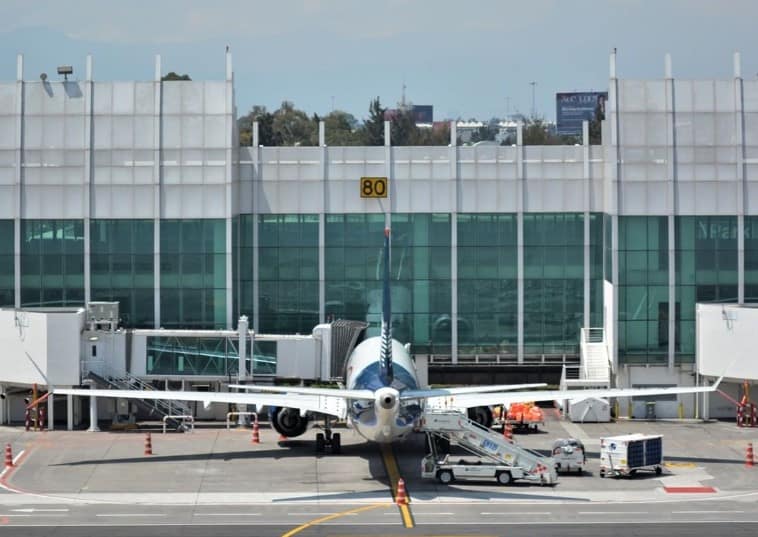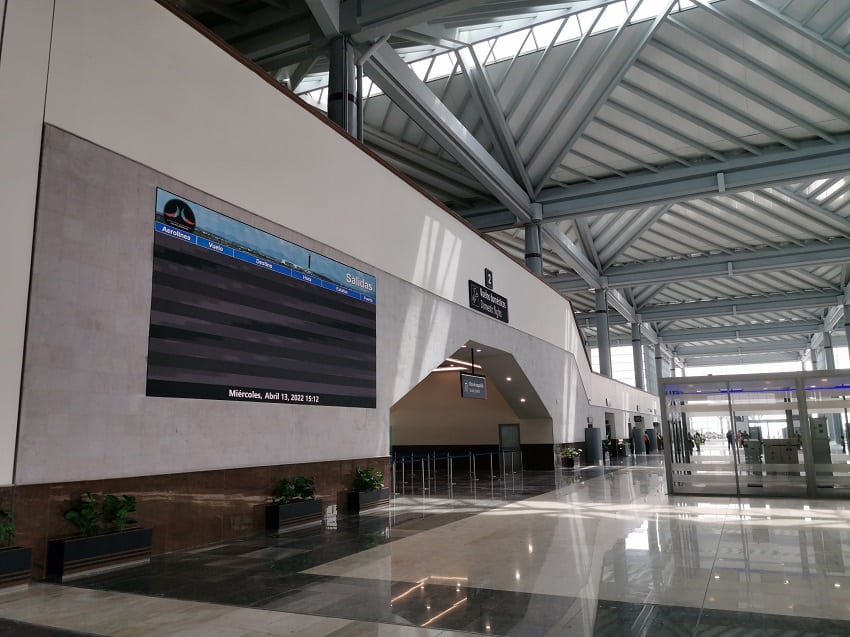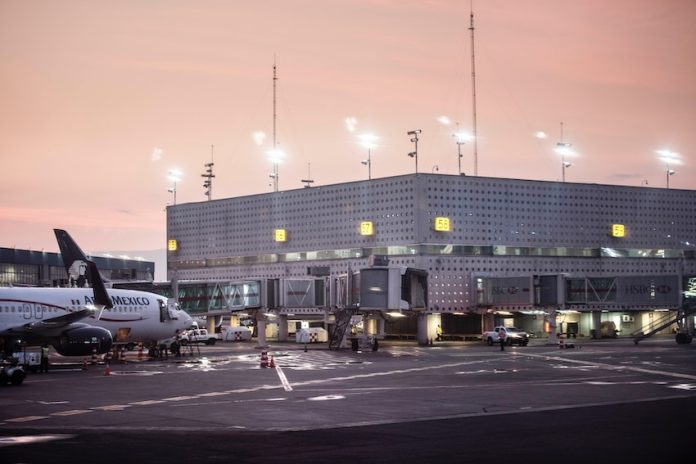A week after a decree was issued to reduce the number of flights at the Mexico City International Airport (AICM) starting in October, the government announced Wednesday that its implementation will be delayed until January 2024.
The reason given was to prevent a negative impact on travelers using Mexico’s busiest airport during the winter travel season.

The reduction from 52 to 43 flights per hour will now begin on Jan. 8, the first Monday after the country’s Christmas vacation period.
The Federal Civil Aviation Agency (AFAC) announced last week that, starting on Oct. 28, takeoffs and landings per hour at AICM should total no more than 43. The airport’s two runways, taxiways and aprons have become overcrowded, and the terminals have become oversaturated with travelers, AFAC noted.
In response to those issues, the federal government had already enacted a year ago a “temporary” plan that has reduced the number of flights arriving and departing from 61 to 52 per hour.
In light of last week’s announcement, the National Chamber of Air Transport (Canaero), which represents the airlines, went on the offensive, saying the new reduction would bring about “a massive cancellation of flights” and “put the country in an unfavorable situation.”

“The basic problem at AICM is not the capacity of [flights] per hour, but the age of the infrastructure and [its state of] deterioration,” Canaero said in a statement.
Mexico’s Ministry Infrastructure, Communications and Transportation (SICT) said this week that the postponement is being made with the aim of supporting travelers and avoiding the cancellation of flights.
Officials said they didn’t want anyone who had already purchased airline tickets for the winter travel season to be affected, and said that “with this resolution, no international flight will be [canceled].”
Earlier this week, the Aviation Pilots Union Association (ASPA) warned that the reduction of operations at AICM would be “disastrous” for commercial aviation and tourism, and “in the worst case, will generate massive layoffs of national workers.”
“With this reduction in operations, which affects only domestic flights, what will come is a cascade of problems: fewer flights and less passenger flow will affect tourism and the Mexican airlines themselves,” ASPA noted.
Like Canaero, ASPA said the root problem at AICM is related to the lack of investment in the infrastructure of Terminals 1 and 2.
With reports from El Economista and Aristegui Noticias
